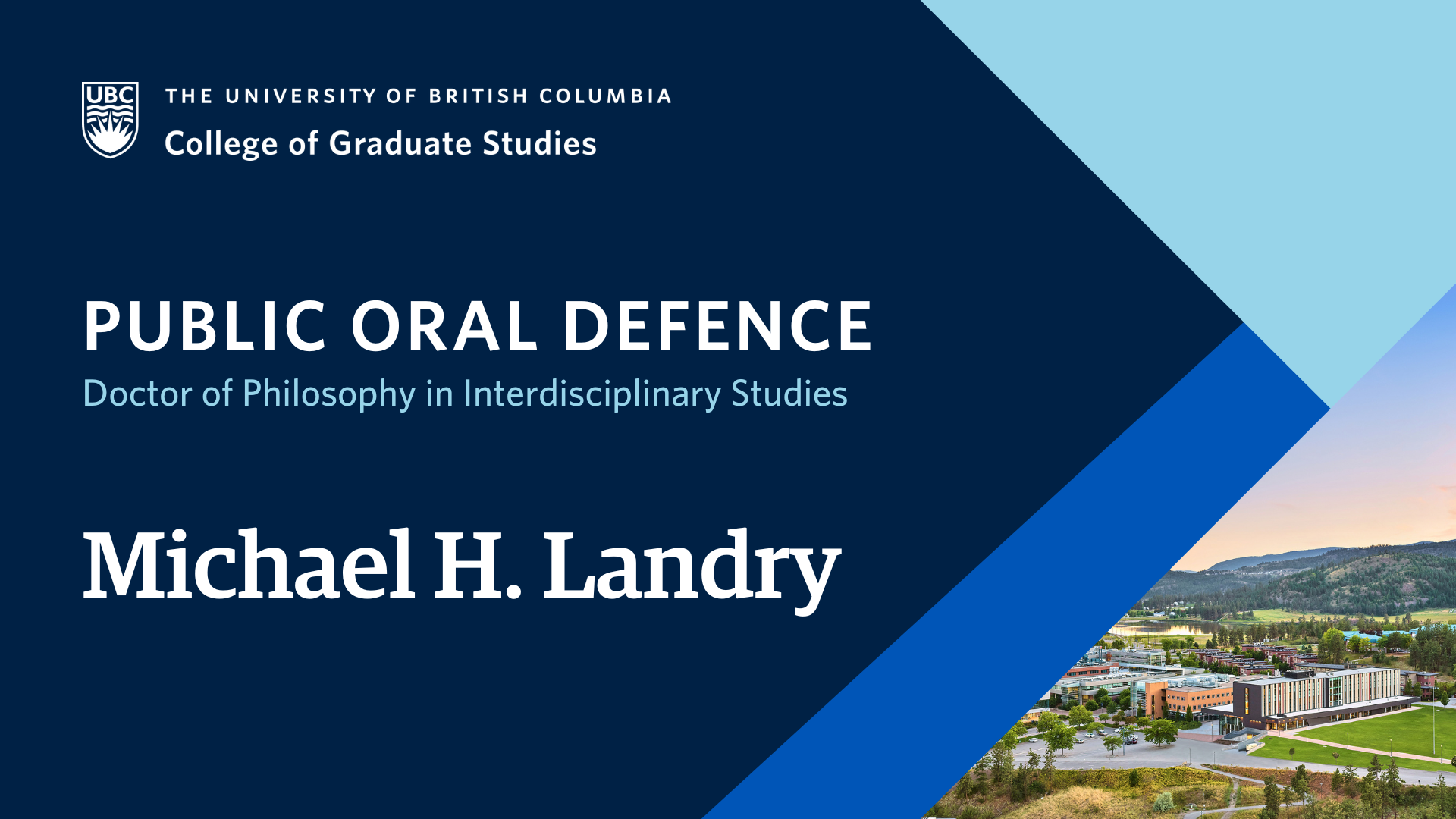
- This event has passed.
Dissertation Defence: The Development of Intercultural Communicative Competence through Online Modules in an English for Academic Purposes Program: Understanding the Multiple Layers of Additional Language Socialization at Play in a Post-Secondary Context
July 18, 2023 at 1:00 pm - 5:00 pm

Michael H. Landry, supervised by Dr. Scott Roy Douglas, will defend their dissertation titled “The Development of Intercultural Communicative Competence through Online Modules in an English for Academic Purposes Program: Understanding the Multiple Layers of Additional Language Socialization at Play in a Post-Secondary Context” in partial fulfillment of the requirements for the degree of Doctor of Philosophy in Interdisciplinary Studies.
An abstract for Michael H. Landry’s dissertation is included below.
Examinations are open to all members of the campus community as well as the general public. Registration is not required for in person defences.
ABSTRACT
English for academic purposes (EAP) programs are an educational pathway for undergraduate students using English as an additional language (EAL), many of whom are international students. These programs typically support students in balancing the cultural and academic demands of multiple literacies related to their academic studies (Hyland, 2002; Hyland, 2006). However, EAP students often report feeling challenged by transitioning into post-secondary academic settings (Douglas et al., 2022; Tweedie & Kim, 2015) and adjusting to intercultural interaction (Keefe & Shi, 2017; Zhang & Zhou, 2010; Zhou & Zhang, 2014). This dissertation presents findings from a qualitative case study into the impacts of intercultural communicative competence (ICC) learning outcomes developed via an online asynchronous module which was completed by EAP students over a 10-week period as part of their regular studies. The conceptual framework draws on EAP in the Canadian context (Douglas et al., 2022), intercultural communicative competence (Byram, 1997; 2021), and additional language socialization (Duff, 2007). The study illuminates how an online module informed by models of intercultural competence (Deardorff, 2006; 2011) and intercultural communicative competence (Byram, 1997; 2021) mediated additional language socialization and the development of overall EAL communicative competence in a post-secondary EAP program, and more broadly within a new academic setting and community. Qualitative questionnaires, document analysis of student multi-modal e-Portfolios, focus group interviews, and individual interviews were used to generate data with the student and instructor participants. Data were thematically analyzed, with representative quotes used to illustrate prevalent themes and identify the perceived impacts of the module. Analysis of the data identified six overarching themes related to the research questions: learning opportunities, nuances of asynchronous learning, intercultural competence development, language development, learner characteristics, and life on and off campus all supported the development of ICC and EAL skills, which interacted to suggest that the modules supported the students’ additional language socialization and participation in the wider campus and local communities within and beyond their EAP studies. The results indicate the overall efficacy of using online asynchronous tools to support EAP learners. Such findings have implications for pedagogy, EAP programming, provision of services, professional development, and policy.